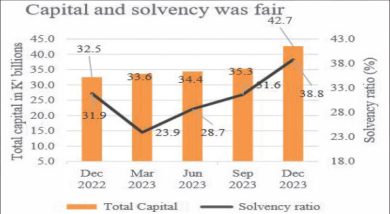Cotton players meet to revamp industry

Regional players in the cotton industry met in Blantyre on Friday for a day-long conference to discuss cotton inputs supply models, contract farming arrangements through concessions, among other issues.
The conference, organised by Cotton Development Trust—Malawi (CDT), attracted delegates from Mozambique, Tanzania, Zambia and Zimbabwe.
Unlike in the tobacco industry where Malawi farmers overproduce, the country fails to meet required demands in the cotton industry and government has attributed this to lack of price initiatives by players in the industry.
Secretary for Agriculture and Food Security Jeffrey Luhanga, said in an interview after opening the conference that there is huge cotton demand that the world’s largest cotton grower, China, fails to satisfy.
He said it is sad that Malawi fails to meet demands while other neighbouring countries such as Tanzania, overproduce.
Luhanga said government is trying all it could to strengthen the cotton industry, citing a $10 million (K1.6 billion) revolving fund government pumped into the industry to farmers in the 2011/12 national budget to stimulate production.
He said cotton is a critical crop in the country’s economy and it significantly contributes to foreign exchange earnings and provides employment.
“Cotton has the potential to impact hugely on the growth and development of the rural economies which the majority of smallholder farmers reside.
“Even though it is an undisputable fact that cotton plays a significant role in our economies, we are still unable to realise its maximum benefits because production still falls below its potential,” said Luhanga.
He said the industry faces challenges such as limited access extension services as well as access to production inputs by resource constrained smallholder farmers.
Cotton production, said Luhanga, requires significant investment in production input such as certified seed, pesticides and fertilisers to achieve desired yield.
He said the majority of the smallholder farmers lack financial muscle to invest in the much-needed inputs.
“As such, the cotton industries in our countries have come up with different models of supplying cotton production inputs to the farmers to improve production.
“This is in the hope that there are enough volumes produced to sustain the increased ginning capacities that we have experienced over the years with the opening up of the cotton industry,” said Luhanga.
A delegate from Mozambique, Norberto Mahalambe, shared experiences in his presentation on contract farming arrangements through concessions.




